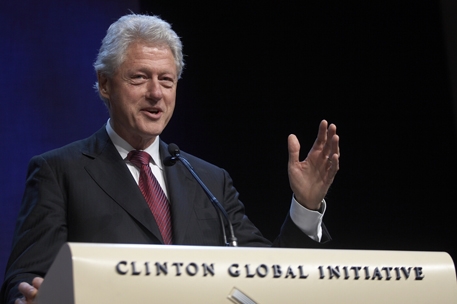By Morgan Phelps
To bridge gaps and solve problems in developing areas of the world responding to the forces of globalization, former President Bill Clinton and his
William J. Clinton Foundation formed the non-partisan
Clinton Global Initiative in 2005.
CGI is simply an initiative, not a source of direct donation or grants. Its focus is on commitments, which lead to financial contributions. In a letter to current and future members of CGI, Clinton noted that the commitments of 1,000 leaders led to $7.3 billion of financial assistance for over 100 countries at of the end of the 2006 meeting.

CGI focuses its efforts on four issues:
- global health,
- energy and climate change,
- poverty alleviation, and,
- education.
Members choose which effort they would like to focus on at their annual meeting in September.
Membership in CGI does not come cheaply or easily as most memberships are by invitation only. For those who wish to apply, prospective members must be a chairman, CEO, or president of an organization, and they must pay $15,000 per year for membership.
The membership fee pays for access to resources, invitations to annual and semi-annual conventions, and for connections to global leaders.
However, CGI does not limit its scope to the world’s rich and powerful people. Instead, it encourages participation from non-members, who may make a personal commitment through the CGI web site. Non-members and members alike can support the efforts of CGI by making donations to the William J. Clinton Foundation.
CGI’s mission stresses commitment, connections and effort, but makes no promises or offers no specific mission statements about what it will accomplish in each area of its emphasis. Each member must make his or her own specific commitment and goals to accomplish the mission of the program.
Clinton explained his involvement and the point of CGI’s efforts to solve issues of global health, energy and climate change, poverty and education by saying:, “We owe it to our children, and our children’s children, to try.”
# # #